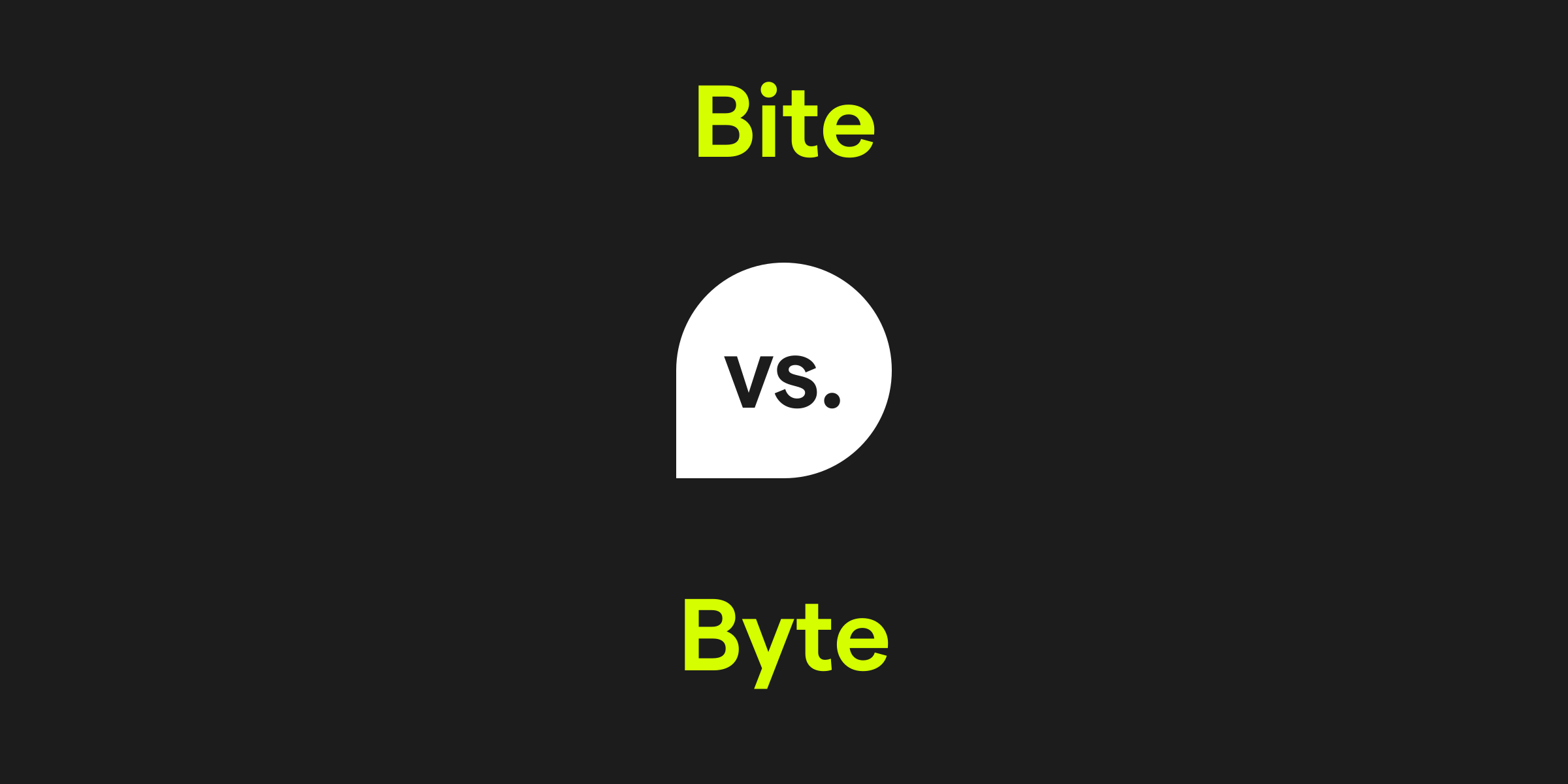Bite vs. Byte: What's the Difference?
The terms bite and byte are often heard and used in different contexts, with one related to computing and the other to a physical action. A bite usually refers to an instance of biting something, often using teeth to cut or grip an object. In contrast, a byte is a unit of digital information commonly composed of 8 bits, and it is a fundamental unit used in the field of computer science to measure data.

How do you use the word bite in a sentence?
The word bite is typically used to describe the action of using teeth to sever, grip, or wound. It can refer to an animal's attack, the sharpness of a flavor, or the act of eating a small amount of food. Bite can also be used metaphorically to describe the harshness or effectiveness of words or actions.
Examples of bite in a sentence
- He felt a sharp pain as the dog's teeth sunk into his leg with a vicious bite.
- Despite its small size, the chili pepper packed a powerful bite that left him reaching for water.
- She took a cautious bite of the new dish, unsure of what flavors to expect.
How do you use the word byte in a sentence?
The term byte refers to a unit of digital information storage. When talking about file sizes, memory capacity, or data transmission, the byte is the standard unit of measurement. Since it represents a grouping of binary digits, the concept of bytes is fundamental in the context of computing and digital technologies.
Examples of byte in a sentence
- The document I downloaded was surprisingly small, taking up only a few kilobytes of space on my hard drive.
- Modern video games require gigabytes of data to provide detailed graphics and complex gameplay.
- During the transfer, the internet connection was interrupted, corrupting several bytes of the file.
Bite and byte definitions, parts of speech, and pronunciation
Bite definition:
A bite is the act of cutting, gripping, or wounding with teeth. It can refer to a small amount of food taken into the mouth or the way an animal catches or defends itself using its teeth.
Bite parts of speech:
Bite pronunciation:
Bite is pronounced as /baɪt/.
Byte definition:
A byte is a unit of digital information that most commonly consists of eight bits. It is a basic measure of data size in computing and digital communications.
Byte parts of speech:
Byte pronunciation:
Byte is pronounced as /baɪt/, identical to 'bite'.
A bite is the act of cutting, gripping, or wounding with teeth. It can refer to a small amount of food taken into the mouth or the way an animal catches or defends itself using its teeth.
Bite parts of speech:
- As a noun: The bite of the insect was surprisingly painful.
- As a verb: Be careful when feeding the ducks, as they can bite.
Bite pronunciation:
Bite is pronounced as /baɪt/.
Byte definition:
A byte is a unit of digital information that most commonly consists of eight bits. It is a basic measure of data size in computing and digital communications.
Byte parts of speech:
- As a noun: The programmer optimized the code to use fewer bytes of memory.
- As a noun (plural): This image requires millions of bytes to represent its rich colors and details.
Byte pronunciation:
Byte is pronounced as /baɪt/, identical to 'bite'.
Bite vs. Byte in a nutshell
Bite and byte, while pronounced the same, represent vastly different concepts. Bite involves the act of using teeth to cut, grip, or wound, whether it be relating to food, an animal's attack, or as a metaphor. Byte, on the other hand, is strictly technical and is crucial in the world of computing and information technology, signifying a specific size of digital data. Recognizing the context in which each term is used is key to understanding their distinct meanings.
Get AI Writing Assistance Wherever You Type
Make sure your vocabulary is on point and every punctuation mark is in the right place, no matter where you’re working. Grammarly works across more than 1 million websites and apps so you can improve your writing without copying, pasting, or breaking focus.

More Commonly Confused Words
Interest piqued? Pore (not pour) over other commonly confused words to help your writing reach peak (not peek) performance.